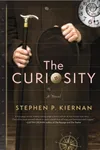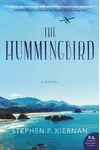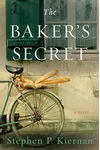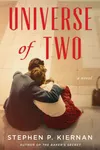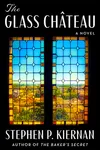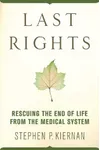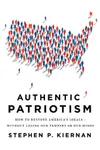Picture an American storyteller who weaves tales of courage, hope, and humanity against the backdrop of war and wonder—meet Stephen P. Kiernan! With novels like The Baker’s Secret and The Curiosity, Kiernan has captivated readers worldwide, blending historical fiction with heartfelt narratives. His knack for vivid characters and immersive storytelling stems from a rich career as a journalist, bringing authenticity to every page.
From his Vermont home, Kiernan crafts stories that resonate with readers seeking meaning in turbulent times. Whether exploring the moral dilemmas of wartime or the ethics of scientific discovery, his work invites us to reflect on what it means to be human. Let’s dive into the life, works, and legacy of this remarkable author!
The Making of Stephen P. Kiernan
Born on March 14, 1960, in Newtonville, New York, Stephen P. Kiernan grew up as the sixth of seven children in a bustling household. A graduate of Middlebury College, he earned an MA from Johns Hopkins University and an MFA from the University of Iowa Writers’ Workshop. Before turning to fiction, Kiernan spent over two decades as a journalist, penning nearly five million words and earning prestigious awards like the George Polk Award for medical reporting and the Scripps Howard Award. This foundation in storytelling and research shaped his ability to craft authentic, emotionally resonant narratives.
Kiernan’s transition to fiction was a natural evolution. His journalistic eye for detail and human struggle informed his novels, which often explore resilience in the face of adversity. A guitarist since age ten, he also brings a creative rhythm to his prose, composing stories as carefully as he does music.
Stephen P. Kiernan’s Unforgettable Stories
Kiernan’s novels are a tapestry of historical fiction, science fiction, and human drama, each marked by meticulous research and compelling characters. The Baker’s Secret (2017) transports readers to a Nazi-occupied Normandy village on the eve of D-Day. The story follows Emma, a young baker whose cunning and courage sustain her community. Praised by Paula McLain for its “painterly precision,” the novel captures the audacity of the human spirit.
In The Curiosity (2013), Kiernan ventures into science fiction, exploring the reanimation of a man frozen in Arctic ice. This debut novel, now in development as a television series, blends romance, thriller elements, and ethical questions about mortality. Universe of Two (2020) tackles the Manhattan Project through the lens of a mathematician’s moral crisis, earning acclaim for its tender yet terrifying love story. The Glass Château (2023), inspired by Marc Chagall, delves into post-World War II France, where art and healing intertwine. Kiernan’s style—rich, empathetic, and thought-provoking—makes history feel immediate and personal.
His nonfiction works, Last Rights (2006) and Authentic Patriotism (2010), reflect his journalistic roots, addressing end-of-life care and civic engagement. Translated into multiple languages, his books resonate globally, offering universal insights into hope and redemption.
Why Stephen P. Kiernan Matters
Stephen P. Kiernan’s impact lies in his ability to humanize history’s grand events. His stories of ordinary people facing extraordinary challenges—whether wartime resistance or scientific breakthroughs—remind us of our shared capacity for courage and compassion. His work has inspired readers and writers alike, earning over 40 awards and sparking discussions on ethics, resilience, and patriotism. By bridging journalism and fiction, Kiernan has carved a unique niche in American literature, encouraging us to find hope in the darkest moments.
His public speaking and advocacy for humane end-of-life care further amplify his influence. Living in Vermont with his two sons, Kiernan continues to write, perform music, and engage with readers, leaving a legacy of storytelling that uplifts and challenges.
- Born: March 14, 1960, Newtonville, NY
- Key Works: The Baker’s Secret, The Curiosity, Universe of Two, The Glass Château
- Awards: George Polk Award, Scripps Howard Award, and over 40 others
- Fun Fact: A guitarist since age ten, Kiernan has recorded three CDs of solo instrumentals.
Ready to explore a world of courage and heart? Snag The Baker’s Secret and dive into Stephen P. Kiernan’s masterful historical fiction!
